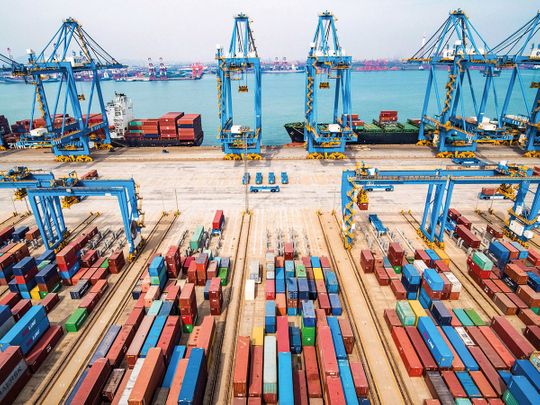
New York: Bond investors are betting that emerging-market assets will be the worst-hit if global trade tensions continue to simmer.
Ambushed by the latest tweet storm from President Donald Trump and his carry through with higher tariffs, they are selling higher-yielding developing-market assets while scaling into government debt in advanced economies. Or they are just sitting it out, waiting for the latest spike in volatility to settle down.
Vanguard Asset Management expects riskier debt — such as that of Ukraine, Argentina and Indonesia — to be hardest hit by the turbulence. Deutsche Bank AG prefers to take a short position in the South African rand as a defensive strategy, while Nomura Asset Management is avoiding adding new trades before a potential US move to increase tariffs on Chinese goods.
Investors are cutting risk and seeking safety amid concern the latest flare-up of the US-China trade war will hurt a global economy that had barely begun to show recovery signs. In one ominous signal Thursday, a part of the US yield curve briefly inverted for the first time since March, potentially foreshadowing a recession.
The risk of a fully-blown trade war with China has risen since Trump delivered on his threat to more than double tariffs on the Asian nation, and as Beijing said it has been forced to retaliate. The move came after discussions between Xi Jinping’s top trade envoy and his US counterparts in Washington made little progress on Thursday, with the mood around them downbeat, according to people familiar with the talks. The negotiations were due to resume on Friday morning Washington time.
‘Playing Wolf’
“I will not be doing anything,” said Richard Hodges, a money manager at Nomura Asset Management, who doesn’t expect a trade deal between Washington and Beijing to be done until year-end. “Trump will play Wolf too often and markets will not believe anything he says.”
Reignited trade tensions have seen yields on 10-year German bunds, perceived to be among Europe’s safest assets, slide once again below zero per cent this week, while their US equivalents are near the lowest level in more than a month. Stocks worldwide have tumbled and emerging-market currencies have weakened against the dollar.
Ten-year Treasury yields could drop below this year’s low of 2.34 per cent, from around 2.44 per cent currently, before there’s any pickup in global investor sentiment, according to Nomura Asset.
The rate is on course for the biggest weekly decline since March even after a 10-year Treasury auction Wednesday saw the weakest demand in a decade — an indication that many in the market are preferring to stay on the sidelines, waiting out the trade uncertainty.
Defensive Portfolio
Current market conditions are good for a “defensive” portfolio, according to Aberdeen Standard Investments.
“I am long duration, long US duration and short Italy,” said James Athey, a money manager at Aberdeen Standard.
Investors in emerging markets are worried. The hit to global growth from the trade war is likely to depress commodity prices, hurting currencies such as the rand, Colombian peso and Indonesian rupiah, according to Deutsche Bank. While the US will be relatively immune to the turmoil, China’s markets are likely to come under stress, according to Robeco Institutional Asset Management BV.
“The odds that a trade deal will not happen or will be significantly delayed have increased significantly,” said Fabiana Fedeli, global head of fundamental equities at Robeco. “We would expect China to be the most impacted.”












